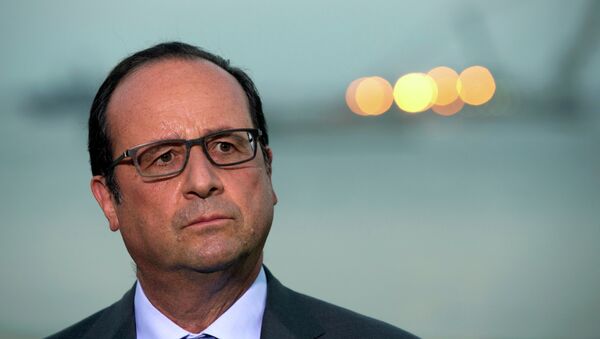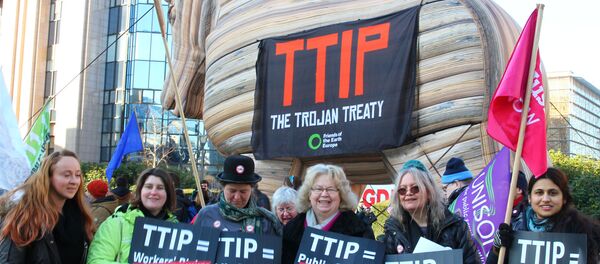A number of French politicians joined hands in recent days to express their concerns about the Transatlantic Trade and Investment Partnership — a controversial trade pact that has been criticized by unions, charities, NGOs and environmentalists and that is gradually losing support in Germany.
French President Francois Hollande said that France is watching the TTIP agreements take shape "but will say no to any conclusion which would put [French] agriculture in difficulty."
In particular, Hollande noted that a number of French agricultural products, like champagne or cheese, benefit from the designation of origin status (as well as many other products from other countries in the EU) and it should be protected. He also stated that current environmental principles should be preserved in the new agreement at all costs.
Earlier this week, French Prime Minister Manuel Valls warned that any deal "will not succeed if it does not guarantee that the [quality] standards we have in France for our citizens' health and environment will be maintained."
Notably, this was followed by skeptical statements by the French Ministers of Finance and Foreign Trade. Matthias Fekl, the French Foreign Trade Minister, expressed his skepticism regarding the "likelihood — or risk" of reaching the agreement during what remains of Barack Obama's presidential term. Emmanuel Macron, the Finance Minister agreed, saying that "there is no urgency" to sign the agreement without being sure that it is "complete, ambitious and does not disown any of our interests."
TTIP aims to topple regulatory and tariff barriers to trade and investment between the United States and Europe, open up the EU services sector and better European access to US government procurement projects.
Initially, the agreement was to be signed in secret, without disclosing the contents to the public. However, in 2014, a proposed draft was leaked. The European Commission consequently launched a public consultation on a limited set of clauses and in January, 2015 published parts of an overview and subsequently increased security over its secrecy.
The Independent summarized the controversial agreement as "reducing the regulatory barriers to trade for big business, things like food safety law, environmental legislation, banking regulations and the sovereign powers of individual nations", or more critically as an "assault on European and US societies by transnational corporations".



